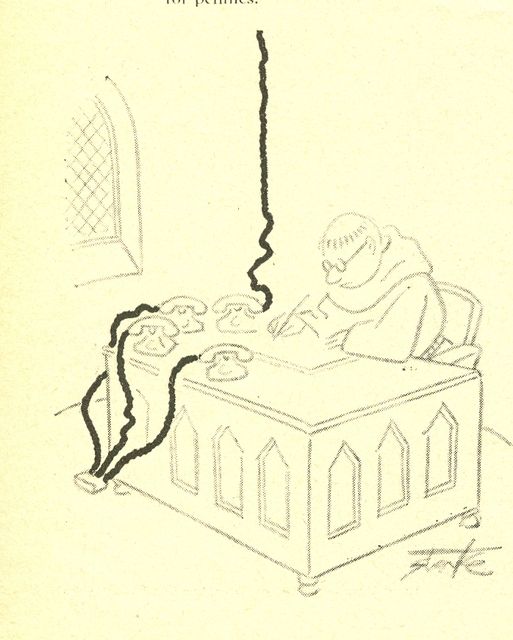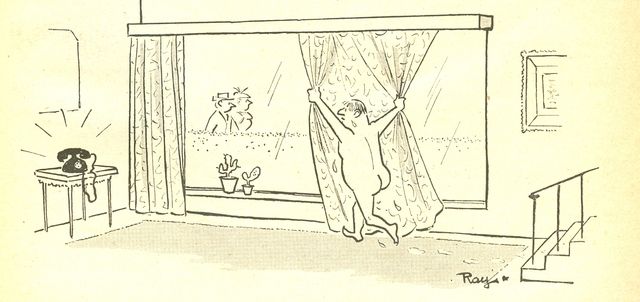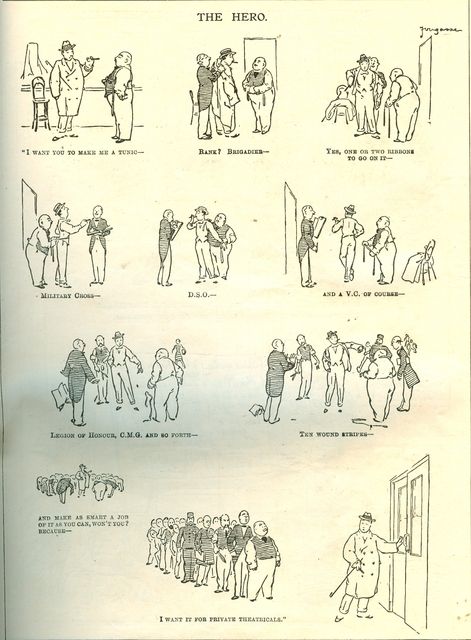09-12-2016, 11:02 AM
883
Re: The Pages of Punch
I have now used all my 1960 cartoons and have decided to go back to 1918. Although we know that the war was to end before the end of the year this seemed a far of dream until the autumn of that year.Common themes were still rationing and women replacing men in yet more jobs. A new topic now appears which playfully suggests that the war would last for another generation or even forever.
-------------
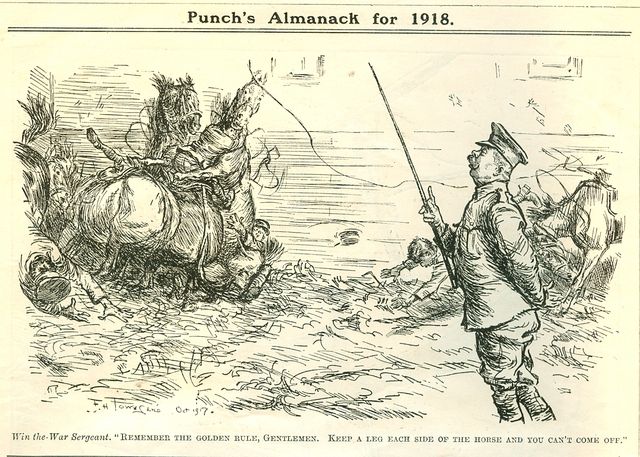
1918: Horse Training
The quantity of horse based cartoons suggests that horses were still seen as an important element of the military machine. Very few were actually used in action but they were often employed in transporting material of different kinds in situations where motorised transport was not feasible.
10-12-2016, 11:00 AM
884
Re: The Pages of Punch
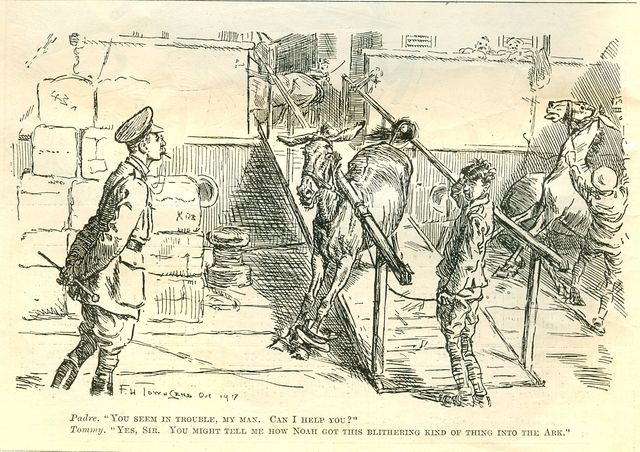
1918: Another Reluctant Quadruped
I wonder what the padre would have said. Today a cleric would be pleased to find a soldier being aware of Noah’s story. In 1918 it would have been quite normal. The young soldier would have been told the story of the Flood at Sunday School.
I think that the reluctant animal is not a horse but a mule. They were heavily used during the World War One.
11-12-2016, 10:52 AM
885
Re: The Pages of Punch
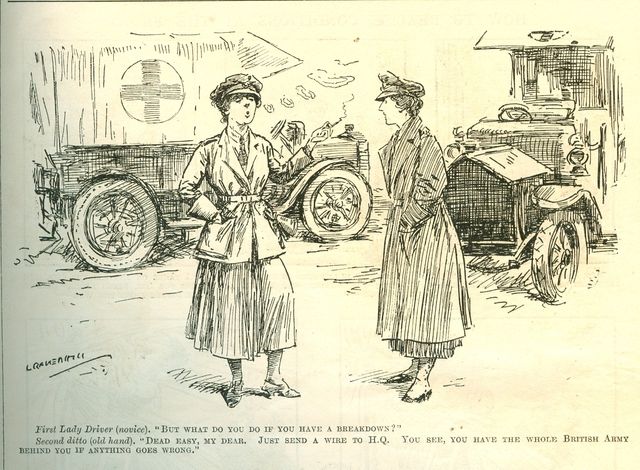
1918: Women Soldiers
The British Army suffered a severe manpower shortage during World War One. Women began to take over many auxiliary roles to make male soldiers more available for active service.
The body language here is finely depicted showing the contrast between the posture of the recent recruit on the right and that of the experienced woman soldier on the left.
12-12-2016, 10:40 AM
886
Re: The Pages of Punch
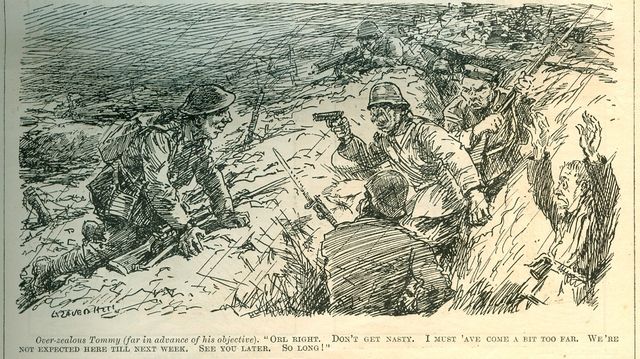
Gung Ho in 1918?
This kind of ‘humour’ was much more common early in the war. By 1918 it looks quite strange. Although the figures are drawn realistically the situation presented is utterly implausible. The overzealous Tommy would stand no chance. My theory this has been drawn to keep up morale on the Home Front. It was not that firm by this stage of the war. There was a distinct undercurrent of war weariness. The death rate and the privations were beginning to tell. In Germany it was much worse but people in Britain would not have known that.
14-12-2016, 10:42 AM
888
Re: The Pages of Punch
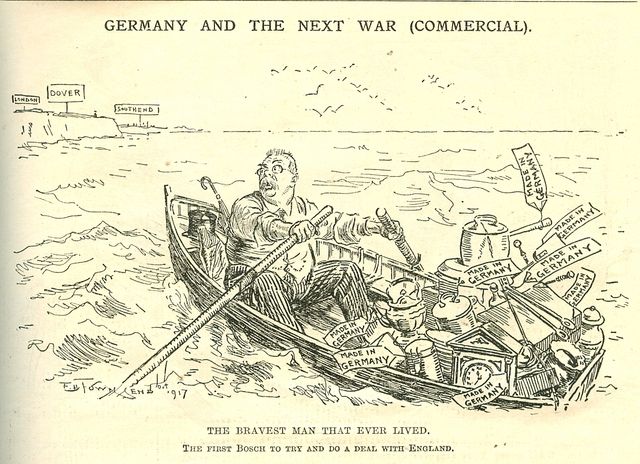
1918: Hating the ‘Hun’
Throughout the 14-18 war we have seen cartoons showing hatred of all things German. Here we see anticipation of how German goods would be viewed after the fighting had come to an end. Immediately after the war the Germans were in no position to export anything but by the mid-Twenties commerce resumed and the hatred soon disappeared.
I remember that during World War Two things were different. While opposing the Nazis there was no hatred of the German people. For instance during WW1 no music written by German composers was performed in public. (There was an attempt to let Beethoven off because he was called Ludwig van Beethoven – not von. The suggestion was that he was really a Belgian – an ally. In fact Belgium didn’t even exist in Beethoven’s lifetime.)
In WW2 there was no such embargo though I’m not quite sure about Wagner. Hitler was so besotten with Wagner that people might have avoided him. I certainly don’t recall hearing his music being broadcast by the BBC.
15-12-2016, 10:47 AM
889
Re: The Pages of Punch
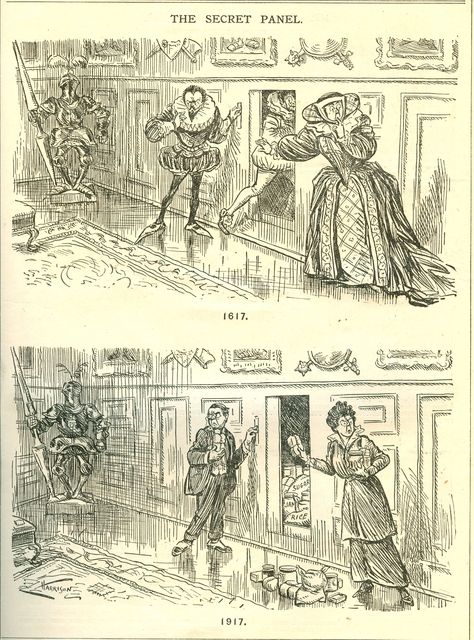
1617 and 1917: A Secret Place
The cartoon would have been drawn in 1917 and then published in 1918.
It is a priest who is being hidden in 1617. Catholics were seen as dangerous enemies of the state. Only 12 years earlier Guy Fawkes had been prevented from blowing up the King and Parliament. Many aristocratic families remained true to the Roman Church. If caught the priests were likely to be executed. Nowadays owners of stately houses proudly show off their priests’ holes where priests used to be hidden.
In 1917 the current owners of the house are hiding food. They do this because hoarding is widely condemned at the time. In times of food shortage it is natural to want to build up a stock against the time when certain items become unavailable. This was judged to be antisocial because it makes shortages more likely. The personal policy was to hoard but public policy was against hoarding.
16-12-2016, 10:49 AM
890
Re: The Pages of Punch
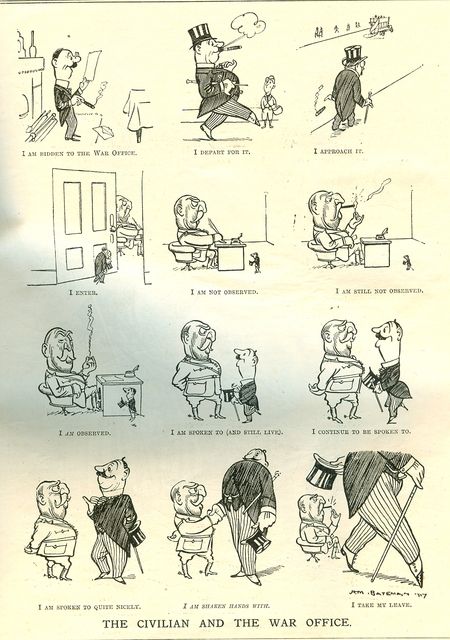
1918: There’s Something about a Soldier!
Rational thought suggests that it is better to be a civilian in a time of war because you face fewer dangers. But a war creates strong pressures to participate actively. Shakespeare famously puts this feeling into words in Henry V’s speech before the battle of Agincourt:
And gentlemen in England now a-bed
Shall think themselves accurs'd they were not here,
And hold their manhoods cheap whiles any speaks
That fought with us upon Saint Crispin's day.
|
|


